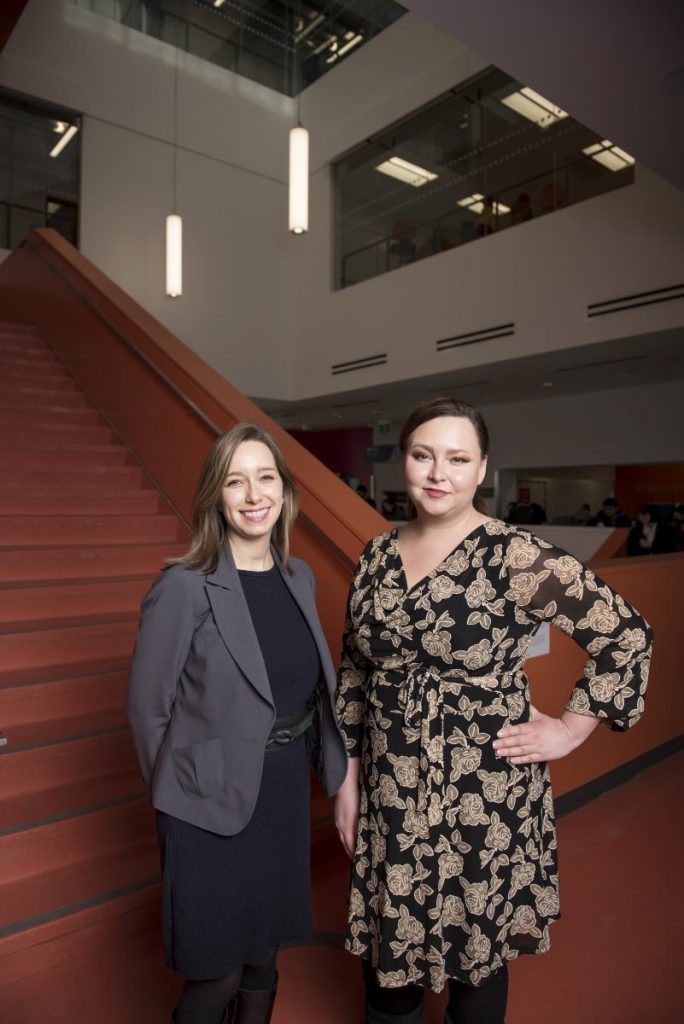Liz Howard: The Griffin Poetry Prize winner IS Sheridan’s first writer-in-residence
by Jenna Mohammed photography by Nikki Wesley
Canadian author, Liz Howard has a passion for creativity wherever she goes. She is the 2016 Griffin Poetry Prize recipient for her acclaimed debut book of self-referencing poems on mixed Indigenous identity, Infinite Citizen of the Shaking Tent. It’s no wonder Howard is Sheridan College’s Creative Writing and Publishing program (CW&P) inaugural writer-in-residence for the winter 2020 semester.
Howard began writing poetry from the age of seven, and only a year into honing her craft, she was a published poet in her northern Ontario town newspaper, Chapleau Express. What has turned into a blossoming career in literature and poetry, was not what she had initially planned for as a young adult.
“Coming from a working-class background the importance of pursuing something ‘practical’ was instilled in me. When I left my hometown to attend university, the first in my family to do so, I chose to pursue studies in psychology and neuroscience with the hopes of one day becoming a physician or academic scientist,” says Howard.
During her studies at the University of Toronto, Howard took up writing again through poetry workshops and writing groups. “After some years it became clear to me that I wanted to write a book and decided the best way to do that was by completing my MFA in creative writing through the University of Guelph,” she says. Working with authors such as Margaret Christakos, Dionne Brand, Lisa Robertson and Catherine Bush, led Howard to publish her first book of poems.
Since then, she has completed other residencies at the University of Calgary and then at Douglas College in New Westminster, B.C. “I’ve found the combination of writing time and mentorship that these roles allow to be exceptionally rewarding,” she says. “When I saw there was an opportunity to continue this kind of work at Sheridan College, I was very eager to apply. It’s a gift to be able to share what I’ve learned as a writer with students while also working toward my next book.”
Students in CW&P can benefit from Howard’s experience and creative energy. Associate dean of humanities and creativity, Genevieve Amaral says the role of the writer-in-residence is to help students connect with working writers. “They get one-on-one experience with writing professionals who can help them understand up-to-the-minute issues, debates, and practices in the field.”
Howard will meet with students, host workshops, guest lecture and organize events for outreach efforts so students can obtain the skills to become well rounded writers. Amaral says CW&P is a unique program because it is a fusion of writing and publishing and the disciplines within them. “We offer courses in traditional media like magazine, poetry, fiction and non-fiction, and emerging media such as creating narratives for games,” says Amaral. It’s a program for anyone looking to find their voice in writing and publishing.
Sean McNabney, dean of humanities and social science, says CW&P students have varied career goals. “Through the program, students gain knowledge of the full spectrum of jobs,” he says. “While students are diverse in their interests, they all have a shared love for words.”

